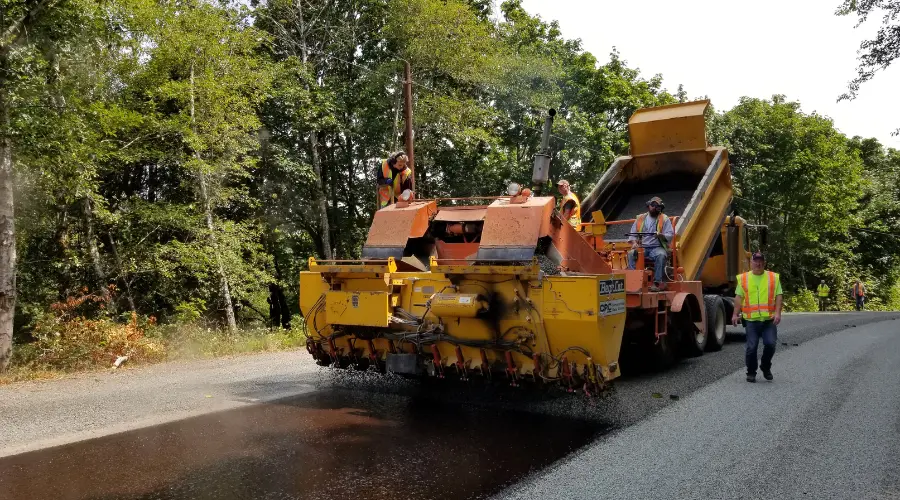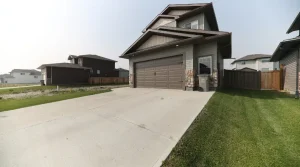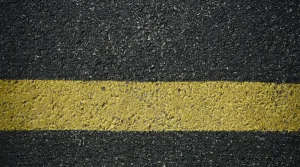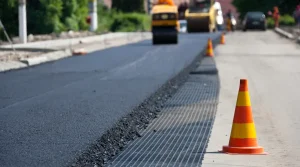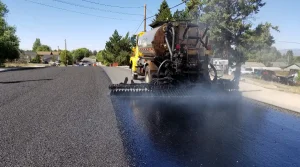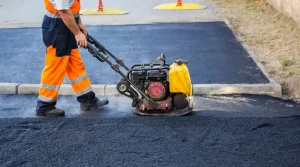Cost:
What are the average costs per square foot for different paving materials?
Paving projects require careful consideration of costs to ensure effective planning and budgeting. The choice of paving material plays a significant role in determining the overall expenses. This comprehensive guide explores the average costs per square foot for various paving materials, shedding light on the financial implications of each option. Whether you’re constructing a driveway, patio, or walkway, understanding the pricing landscape will empower you to make informed decisions aligned with your budget and preferences.
Attention Hackensack, New Jersey homeowners! When quality matters, choose experience over inexperience for your paving needs. Trust the professionals at Paving Hackensack to deliver excellence every time.
Concrete: Paving typically ranges from $5 to $10 per square foot. It is a durable and versatile option for various applications.
Asphalt: Asphalt paving is generally more economical, with costs spanning from $3 to $7 per square foot, making it an attractive choice for budget-conscious projects.
Pavers: The elegance and versatility of pavers come at a premium, with costs ranging from $10 to $20 per square foot, depending on the specific material and design.
Stone: For those seeking a luxurious and timeless aesthetic, stone paving can be an investment, with costs ranging from $15 to $30 or more per square foot, subject to the type of stone and complexity of installation.
It is crucial to note that these figures serve as general approximations, and the actual costs may fluctuate based on factors such as the quality of materials, labor expenses, and the specific location of the project.
To gain a more practical understanding of paving costs, let’s explore the estimated installation expenses for a standard driveway or patio, assuming a 600-square-foot area:
Concrete: The average installation cost ranges from $3,000 to $6,000 for a concrete driveway or patio of this size, offering a durable and low-maintenance solution.
Asphalt: An asphalt driveway or patio of the same dimensions typically costs between $2,000 and $4,000, making it a more budget-friendly option than concrete.
Pavers: The installation of a paver driveway or patio spanning 600 square feet can range from $6,000 to $12,000, reflecting this material choice’s added intricacy and visual appeal.
It’s important to note that these figures are rough estimates, as the actual costs can vary significantly depending on several factors specific to each project.
Indeed, numerous elements contribute to the overall cost of a paving endeavor. These
Material Quality: Investing in premium materials often increases costs, as superior quality typically commands a premium price point.
Project Size: Larger paving projects tend to incur higher expenses due to the increased demand for materials and labor, making economies of scale a crucial consideration.
Site Accessibility: Limited access to the work site can pose logistical challenges, potentially leading to additional costs associated with transporting materials and specialized equipment.
Excavation Requirements: Projects requiring extensive excavation work, such as grading or site preparation, will likely involve higher costs due to the increased labor and equipment requirements.
Decorative Features: Incorporating intricate designs, patterns, or decorative elements can significantly elevate the overall costs, as these features often require specialized skills and additional materials.
Labor Rates: Labor costs can vary substantially depending on the geographical location, with urban areas typically commanding higher rates than rural regions, impacting the overall project budget.
By understanding and considering these factors, you can gain a more comprehensive understanding of the potential expenses associated with your paving project. This will enable you to plan accordingly and make informed decisions that align with your budget and preferences.
Financing Alternatives
For many homeowners, financing a paving project upfront can be a significant financial burden. Fortunately, numerous contractors offer flexible financing options to make these projects more accessible and affordable. These alternatives include customized payment plans or specialized loans tailored to individual budgets and timelines. By exploring these financing choices, homeowners can spread the costs over an extended period, alleviating the strain on their immediate financial resources.
To take advantage of these opportunities, inquire about financing options when requesting quotes from prospective contractors. This proactive approach allows homeowners to assess the various offerings and select the solution that best aligns with their financial circumstances, ensuring a seamless and stress-free paving project experience.
Durability:
How durable is the paved surface before it requires replacement?
Proper installation and consistent maintenance can significantly extend the lifespan of paving materials. Concrete typically endures for 25 to 30 years, Asphalt for 15 to 20 years, and Pavers can last 25 years or more.
What maintenance is necessary to increase longevity?
Regular maintenance duties such as seal coating, cleaning, and prompt repairs are vital for extending the lifespan of paved surfaces. The frequency of these maintenance tasks depends on the type of paving material used.
Do certain materials excel over others in specific applications?
Absolutely. Concrete is often preferred for driveways because of its strength and durability. On the other hand, pavers are commonly chosen for patios and pool areas because of their aesthetic appeal and long-lasting nature.
Might the surface develop cracks or shift over time due to weather conditions?
Absolutely. Factors such as ground movement, tree root expansion, and freeze/thaw cycles can lead to cracking and settling of the paved surface as time goes on. Consistent maintenance and prompt repairs can help mitigate these issues and prolong the pavement’s lifespan.
Environmental Impact:
Are the materials and installation methods environmentally friendly?
Adhering to best practices allows most paving materials to be manufactured and installed in ways that support eco-friendly principles. Paving initiatives can greatly diminish their environmental footprint by embracing sustainable practices like utilizing recycled materials, reducing energy usage during production, and employing efficient installation techniques. This commitment to eco-conscious strategies ensures that the process meets functional needs while promoting responsible management of our planet’s resources.
Understanding the environmental repercussions of manufacturing and transporting materials
is paramount. The carbon footprint of any project is intricately linked to the distances materials travel, with transportation emissions wielding considerable influence over its environmental footprint. However, a strategic shift toward local or regional suppliers holds promise in mitigating this impact. The reliance on lengthy transportation routes diminishes by procuring materials from nearby sources, thereby curtailing associated emissions. This proactive approach curbs environmental harm and injects vitality into the local economy while nurturing community bonds. Embracing local and regional suppliers thus emerges as a robust and sustainable solution, aligning seamlessly with eco-conscious principles and reinforcing economic resilience and environmental stewardship.
Could permeable paving be the answer to managing runoff and improving drainage?
Options like permeable concrete and tailored paver designs allow water infiltration, minimizing runoff. These advancements combat urban flooding, recharge groundwater, and improve water quality by filtering pollutants. Embracing these technologies fosters sustainable urban growth, easing environmental pressures and fortifying ecological resilience.
Can existing pavement be recycled or repurposed for new projects?
Recycled concrete and asphalt offer eco-friendly alternatives for paving initiatives, minimizing landfill waste. These materials can be transformed through innovative recycling methods into high-quality aggregates or even new pavement, conserving natural resources and reducing the environmental footprint associated with traditional paving materials. Embracing recycling in paving projects fosters a circular economy, promoting sustainability and responsible resource management.
Functionality:
How do different paving materials compare in slip resistance?
Paving choices like broom-finished concrete or textured/tumbled pavers provide excellent traction, improving safety in various environments. Crucial in areas prone to moisture accumulation, such as pool decks, outdoor walkways, and bathroom floors, these surfaces reduce slip and fall risks by offering superior grip and stability. Their enduring durability ensures long-term performance, instilling confidence in property owners and emphasizing safety in residential and commercial spaces.
Is the surface capable of enduring heavy vehicle traffic?
Concrete and paver driveways boast remarkable durability, enduring the weight of heavy trucks and vehicles without degradation. Their robustness makes them ideal for high-traffic areas such as industrial zones or commercial properties frequented by heavy-duty vehicles. Conversely, asphalt driveways are durable but better suited for lighter residential traffic due to their slightly lower load-bearing capacity. Evaluating the intended usage aids in choosing the most suitable driveway material to ensure optimal performance and longevity.
How can traction be improved through texture or patterns?
Concrete and paver driveways excel in strength, enduring heavy vehicles effortlessly, and are ideal for bustling areas like industrial zones or commercial properties. Conversely, asphalt driveways, though robust, are better for residential traffic due to a slightly lower load-bearing capacity. Enhancing surface texture and slip resistance can be achieved by integrating grit materials during installation or employing stamped patterns, offering an additional safety measure. These methods enhance grip, particularly in areas prone to moisture or high foot traffic.
How can paved surfaces withstand stains, deicing salts, and chemicals?
Preserving paved areas’ longevity and aesthetic appeal necessitates using sealers and consistent maintenance. Tailored sealers designed for materials like concrete or pavers serve as protective shields against stains, salt, and corrosive substances. Regular maintenance, including cleaning and resealing as necessary, ensures durability against environmental factors and regular use. This proactive approach fortifies surface resilience and maintains its visual attractiveness for an extended period, contributing to the overall longevity of the paved area.
Aesthetics:
Explore the myriad of design options and color schemes available with concrete.
From a vast spectrum of tints to intricate patterns, concrete offers unparalleled customization for artistic expression. Likewise, pavers present endless possibilities for distinctive layouts and designs, adding versatility to outdoor spaces. Whether opting for tinting and stamping concrete or leveraging the versatility of pavers, the boundless potential exists to elevate aesthetics and infuse outdoor environments with individuality and character.
Are paving materials customizable or available in patterns?
Concrete presents numerous customization avenues for achieving distinct and personalized looks. Intricate designs can be etched through decorative saw cuts, while stains offer a range of vibrant or muted hues to enhance its aesthetic appeal. Stamp techniques replicate textures such as brick or stone, infusing depth and character. Furthermore, exposed aggregate finishes unveil the innate beauty of the stone, resulting in visually captivating surfaces. These methods offer genuine customization opportunities for concrete, catering to individual tastes and design visions.
Consider how the outcome will harmonize with the property’s existing architectural style and landscaping.
Choosing appropriate paving materials and design components highlights a home’s architectural essence. For traditional dwellings, rustic stone pavers exude timeless allure, harmonizing with the classic aesthetic through their natural textures and warm tones. Conversely, contemporary homes thrive with sleek pavers featuring clean lines and modern appeal, reinforcing minimalist design principles and fostering a unified and refined ambiance.

